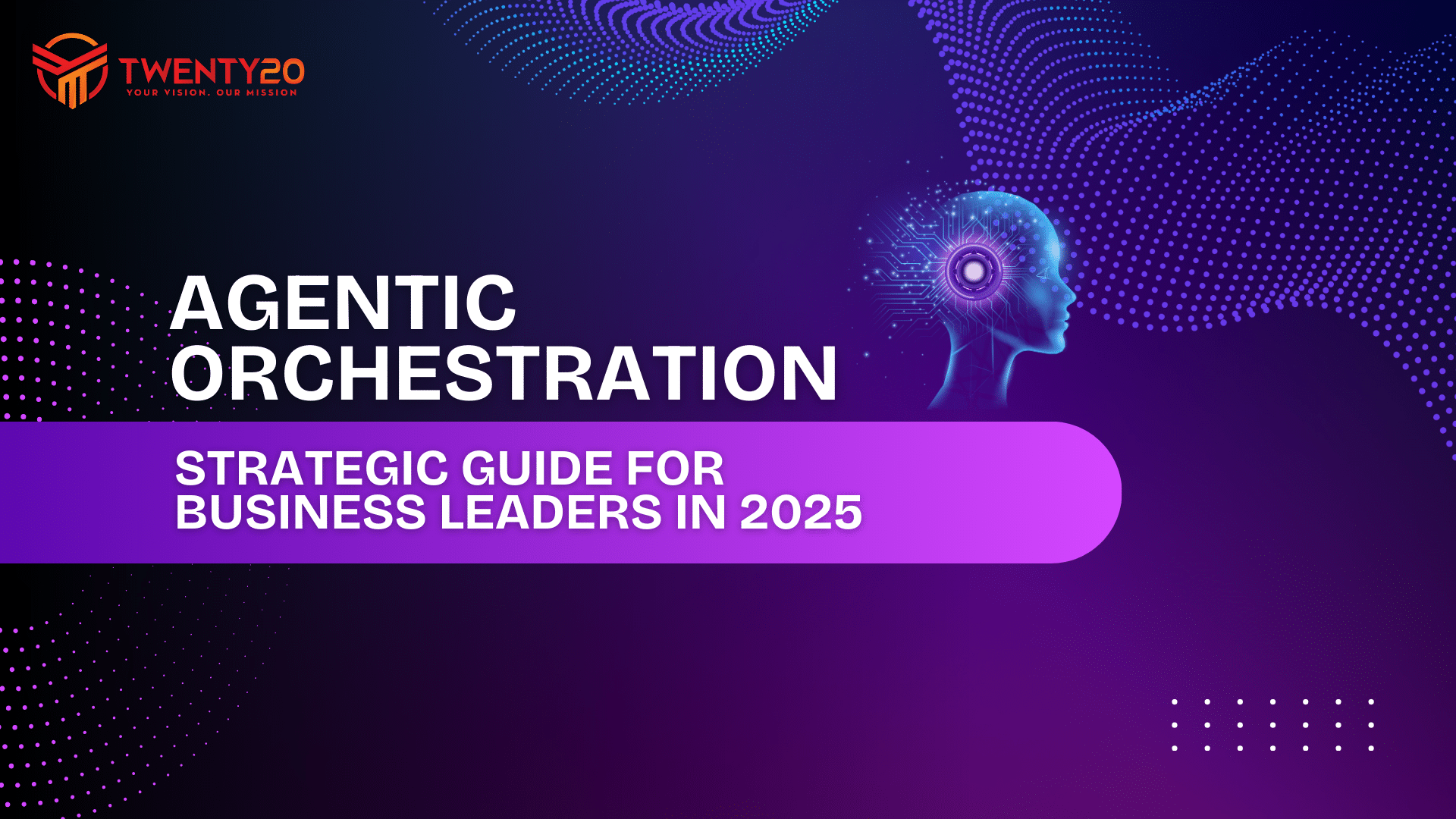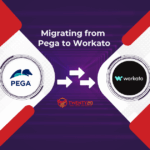
Migrating from Pega to Workato: A Strategic Guide for Enterprise Automation
June 26, 2025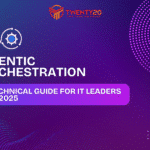
Agentic Orchestration: Technical Guide for IT Leaders in 2025
September 3, 2025
Migrating from Pega to Workato: A Strategic Guide for Enterprise Automation
June 26, 2025
Agentic Orchestration: Technical Guide for IT Leaders in 2025
September 3, 2025Agentic Orchestration: Strategic Guide for Business Leaders in 2025
The business landscape is experiencing a fundamental transformation. Organizations trapped in reactive cycles—responding to customer complaints after dissatisfaction occurs, addressing system failures post-downtime, managing supply chain disruptions only after impact—face inherent operational limitations that prevent achieving full potential.
Agentic Orchestration represents the evolution from task automation to intelligence automation, offering a transformative alternative that positions forward-thinking companies as market leaders.
What is Agentic Orchestration?
Agentic Orchestration involves multi-agent systems where specialized AI agents collaborate to solve complex business challenges. Unlike traditional systems following predetermined rules, these agents can plan strategically, adapt in real-time, and continuously optimize workflows based on changing conditions.
The defining characteristics include:
- Autonomy: Initiating and completing tasks without continuous human oversight
- Advanced Reasoning: Making sophisticated decisions by evaluating options and anticipating outcomes
- Continuous Learning: Improving performance through environmental feedback and interactions
- Scalability: Expanding computational resources to handle increasing complexity
Agentic AI vs. Traditional Automation: Understanding the Paradigm Shift
The difference between Agentic AI and existing technologies is like comparing a self-driving car to a GPS system. While GPS provides directions, the human driver remains responsible for execution and adaptation. A self-driving car, however, takes complete control of navigation and adapts to dynamic road conditions autonomously.
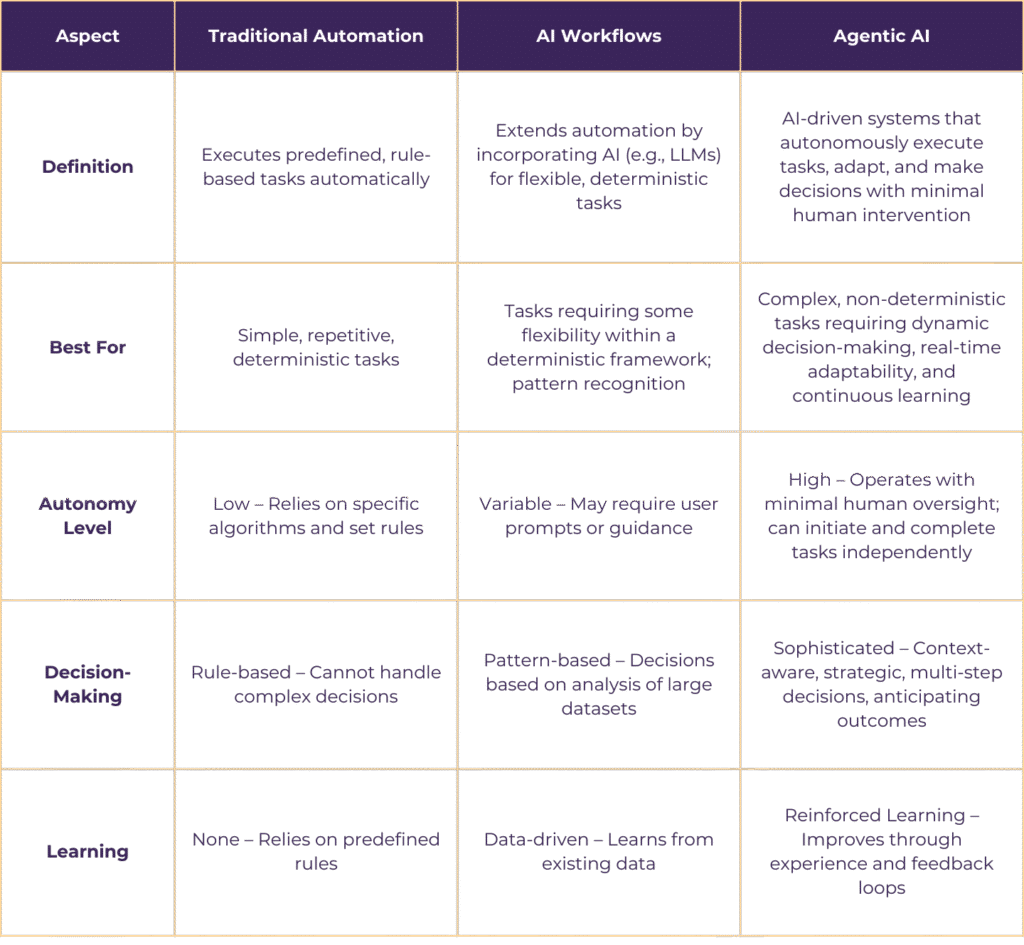
This comparison reveals why forward-thinking organizations are making the transition: Agentic AI doesn't just automate tasks, it transforms entire operational models by enabling proactive, intelligent decision-making across complex business processes.
Agentic Orchestration in Enterprise Functions: Comprehensive Comparison
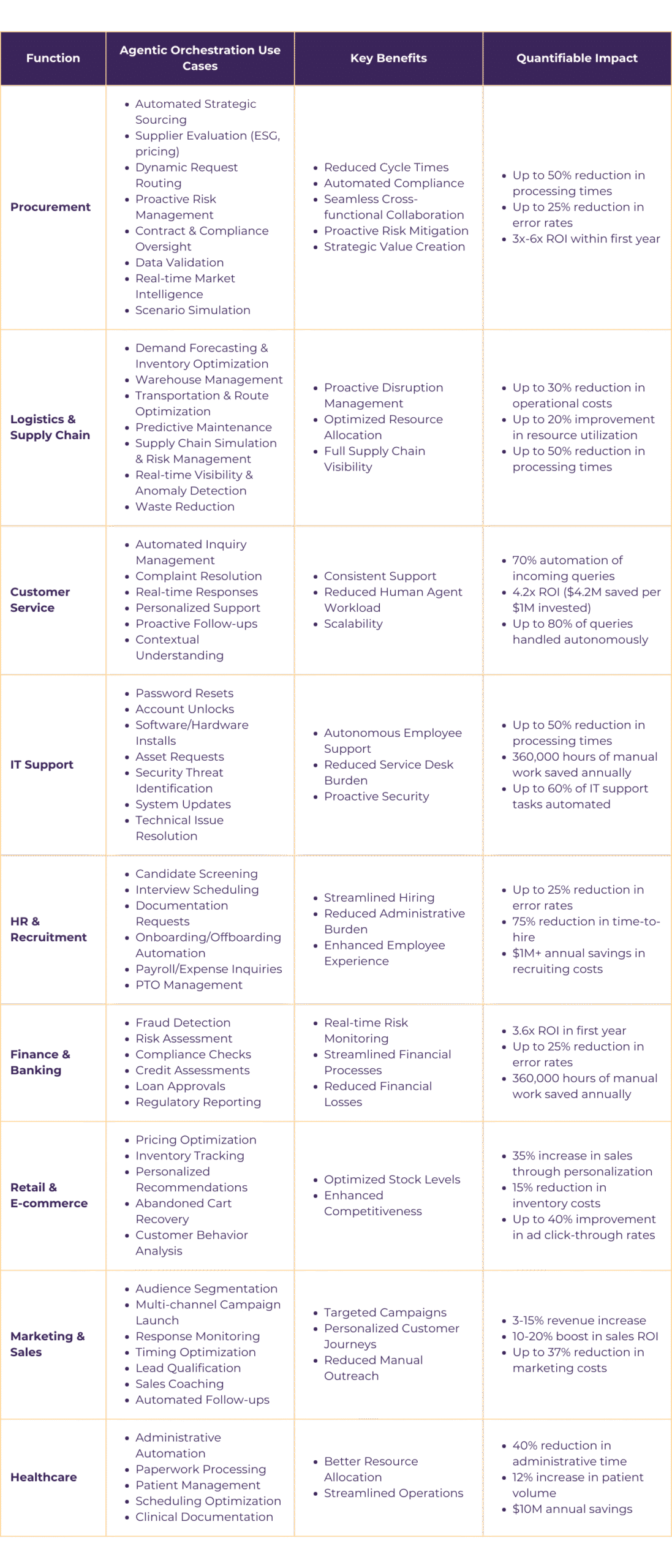
Strategic Benefits for Organizations
Operational Agility and Competitive Edge
Proactive contact centers leveraging agentic capabilities demonstrate 20 times greater annual improvement in customer satisfaction rates and 5.4 times greater annual increase in customer retention rates compared to reactive counterparts.
Enhanced Scalability Without Linear Costs
Cloud-native orchestration platforms reduce deployment complexity by 70% while improving agent reliability by 85%. Once deployed, AI agents handle significantly larger workloads with minimal additional expense.
Risk Mitigation and Resilience
The shift to proactive problem management leads to significant decreases in critical incidents. Organizations with robust AI governance frameworks report 95% compliance rates and 50% fewer security incidents.
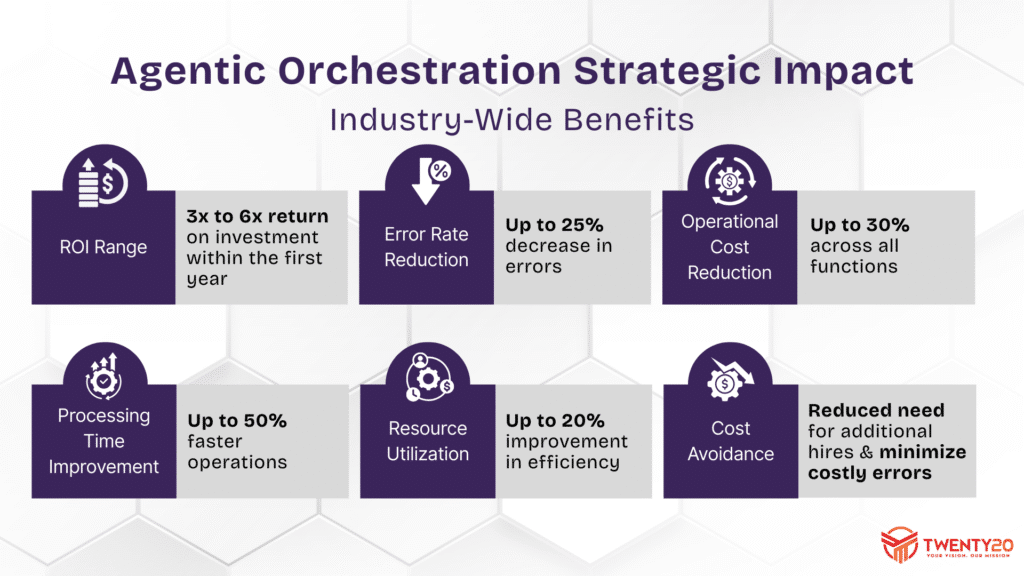
Overcoming Strategic Challenges
The Leadership Imperative
Success requires leadership that understands AI as a strategic growth driver, not just a cost-reduction tool. 88% of senior executives plan to increase AI budgets, with 79% already utilizing AI agents.
Managing the Transition
While Gartner predicts 40% of agentic AI projects may face challenges by 2027, organizations with proper governance and phased implementation consistently outperform reactive counterparts across key operational metrics.
The Competitive Reality: Act Now or Fall Behind
Industry analysts consistently emphasize that the biggest AI risk is underutilizing AI. Organizations that embrace Agentic Orchestration early gain substantial competitive advantages, setting new standards for operational speed, intelligence, and business autonomy.
The question facing business leaders isn't whether Agentic Orchestration will transform their industry, but whether they'll lead that transformation or struggle to keep pace as competitors gain intelligent, proactive operational advantages.
Transform Your Operations Today
The future of business operations is proactive, intelligent, and autonomous. Don't let your organization fall behind while competitors harness Agentic Orchestration to optimize workflows, enhance customer experiences, and build operational resilience.
Ready to lead the transformation? Get in touch with our orchestration expert to discover how Agentic Orchestration can revolutionize your business operations and position your organization at the forefront of intelligent automation.
About the Authors

Shyam Jayakumar
Meet, Shyam Jayakumar, our Founder and CEO at Twenty20 Systems, who brings over two decades of extensive experience across diverse service industry sectors. With a proven track record in professional services, business transformation, and technology consulting, he has built and led high-performing teams across multiple large organizations. Shyam's expertise spans data integration, business analytics, digital transformation, and cloud-based solutions, where he has consistently driven revenue growth and delivered measurable business outcomes for clients across industries. His strategic vision for data-driven decision making and commitment to customer success drives Twenty20 Systems' mission to deliver world-class consulting services.

